Alibaba's affluent: Instant riches for company workers
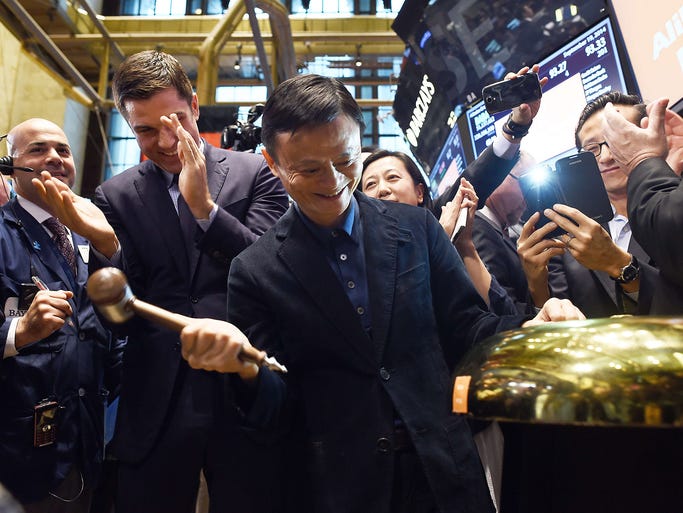
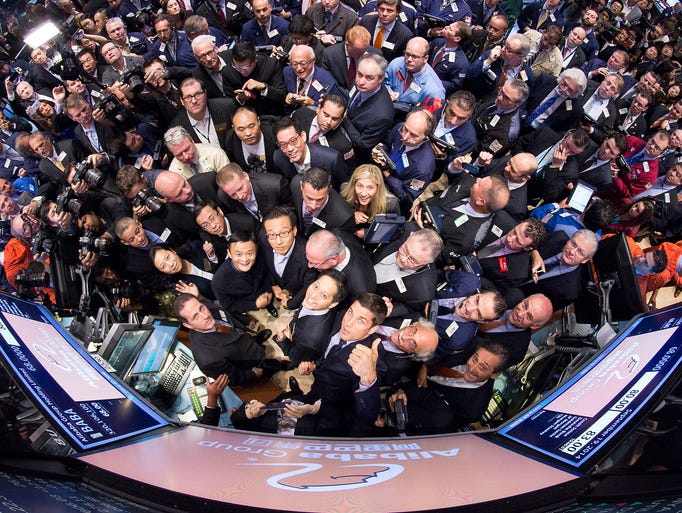
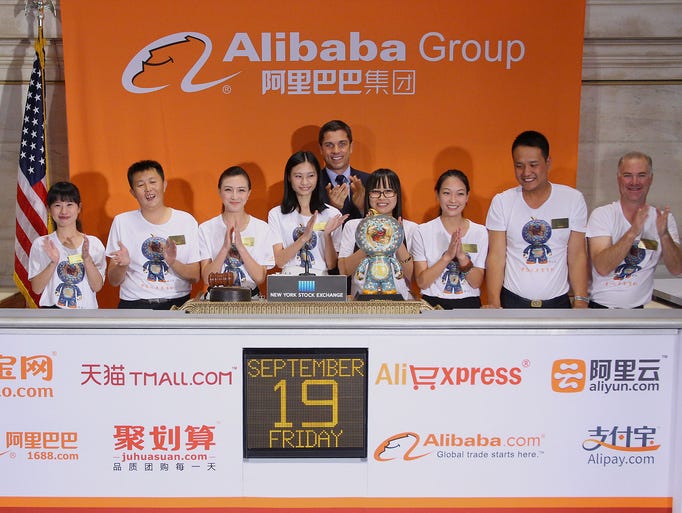
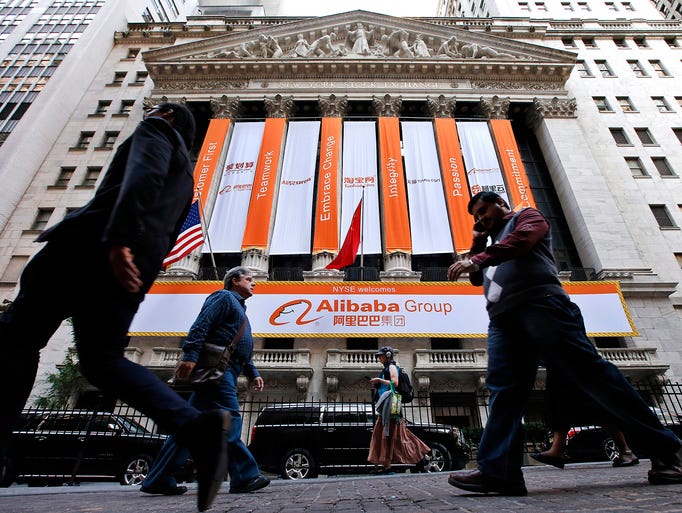
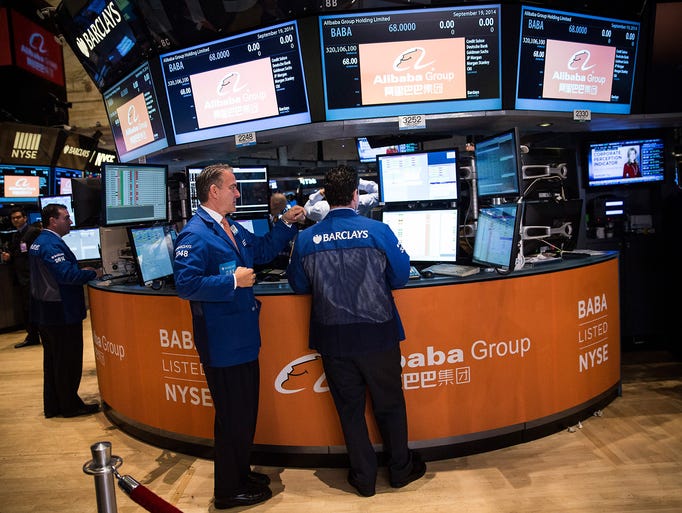
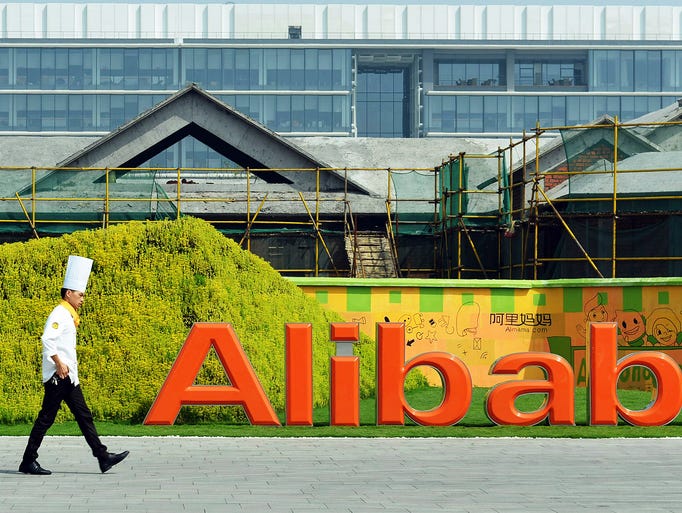
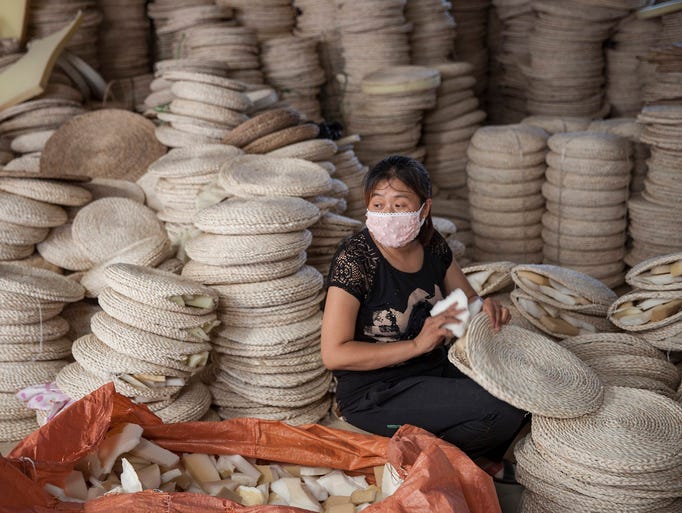
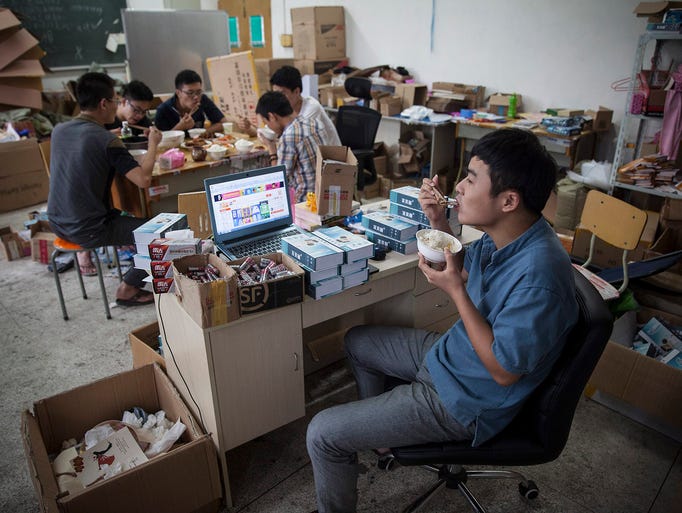
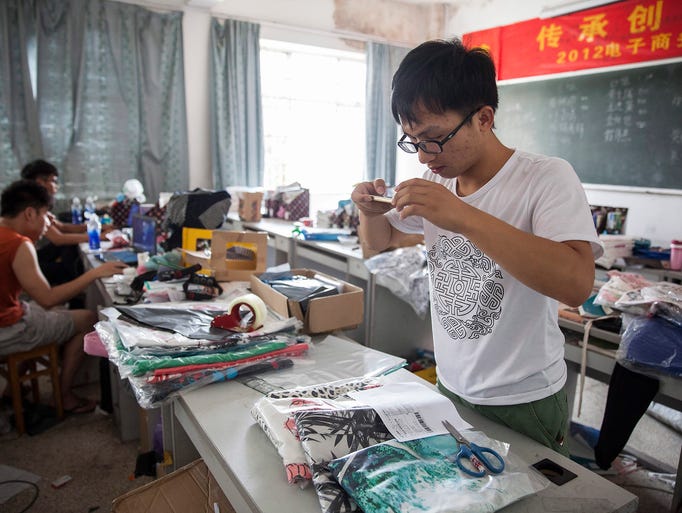

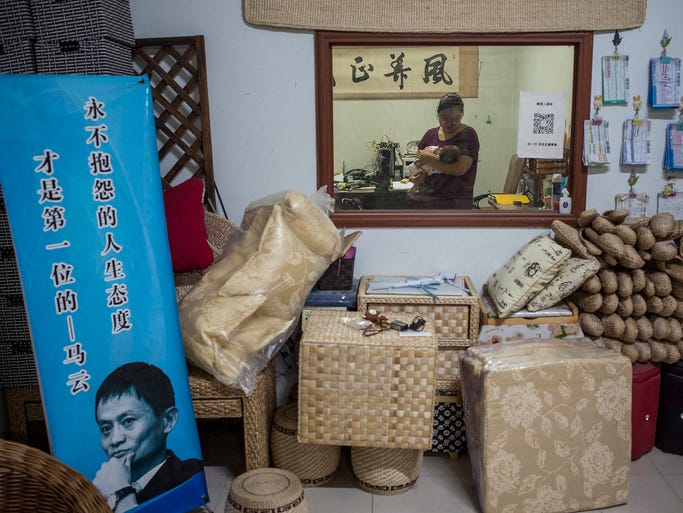
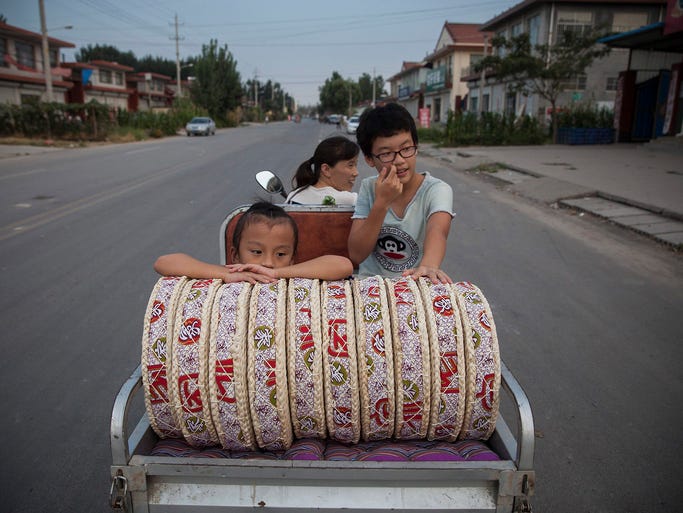
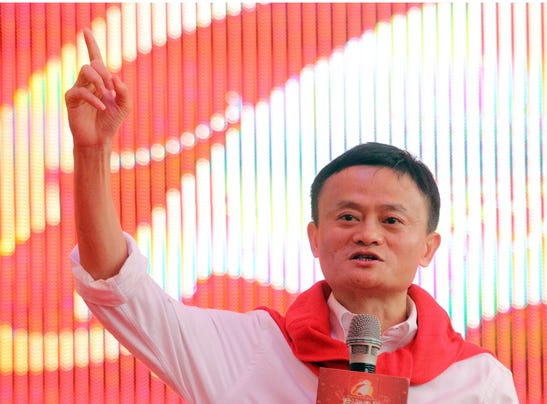
BEIJING – You might be millionaires, but please spend wisely. In recent months, as the IPO of Chinese Internet giant Alibaba loomed into view, founder Jack Ma kept warning his employees. "We've worked so hard, but not for the sake of turning into a bunch of uncouth new rich," he wrote in a late July e-mail.
With Friday's eye-popping, record-breaking $167 billion listing in New York, China's nouveau riche just swelled some more as more than 5,000 current and former Alibaba employees were selling their shares in this IPO. And they won't lack for places to splurge their new-found wealth.
"Neighbors, congratulations" screamed a real estate billboard Friday at the Xixifengqing development a single street away from Alibaba's headquarters in east China's Hangzhou city. "This group of potential buyers is rich enough to buy the bigger townhouse, which is around $1.3 million for a 3,230 square foot house," salesman Wang Mengzhou said. "I' m confident our sales will soar in the near future."
China's newly prosperous typically rush into real estate, cars and luxury items such as expensive watches, said Rupert Hoogewerf, the Shanghai-based publisher of Hurun, China's best-known "Rich List." "Inevitably, more sports cars will be sold in Hangzhou than before," said Hoogewerf, who expects Hangzhou may rise from fifth place on Hurun's ranking of Chinese cities with most millionaires, based on U.S. dollars.
"The biggest challenge to somebody who got rich overnight is the change in lifestyle. Some turn to gambling, others live a lifestyle not commensurate to their wealth," he said. "But these tech people are slightly different. They put a lot of heart and soul into the business," said Hoogewerf, who expects that many Alibaba millionaires will buy property but also re-invest a significant amount in other start-ups.
With his love of kung fu novels, and a blending of East and West, Jack Ma, now executive chairman, strives to give Alibaba a distinct corporate culture. In May, he told more than 4,000 employees at an Alibaba conference that he hopes the IPO doesn't mean "another batch of tuhao (slang for 'uncouth new rich') will appear in China", reported the Zhejiang Online website. Instead, Ma hoped for "a batch of genuinely noble people, a batch of people who are able to help others, and who are kind and happy."
Former Alibaba employees, many engaged in start-ups of their own, praise Ma's efforts to raise a higher-minded workforce. "I heard some outsiders call Alibaba staff 'tuhao', but that's not true," said Huang Haijun, 40, a senior manager of Alibaba's mobile market department who left in July after five years. "Most Alibaba people are rational and will use the money to start their own businesses," he said.
Huang's new venture, an angel investor called Zhonghai Investment, employs several former Alibaba employees. "I also prefer the entrepreneurs we invest in to be from Alibaba, as the company culture influenced them. They communicate easily, are able and highly efficient," said Huang, whose confidence in the firm's future growth persuades him to hold on to his shares for now.
Next Wednesday, Huang will attend a Hangzhou party to celebrate the IPO, organized by an association for former Alibaba employees that also encourages entrepreneurship. App-developer Yang Yang will attend, but celebrated Friday, too, by taking colleagues, including several Alibaba share-holders, to a lake near Hangzhou.
In 2006, after college graduation, he borrowed money from friends for the train ticket from central China to Hangzhou, and the chance to start as an entry-level salesman at Alibaba. Yang, now 31, left the firm last year as regional manager for most of north China, and set up a company to develop the 'Love Car-Pooling' app, similar to the USA's Lyft.
"I never heard of any Alibaba people wasting money on unnecessary things," said Yang. "It's because of the company culture, which says you must make good use of your money, work hard, be creative, get promoted. Many people used money from shares to start their own businesses," said Yang, who cashed in his own shares for $150,000 to buy a house with his fiancée in 2009.
Even where Friday's listing brings no direct benefits, Alibaba's success employs and inspires millions across China. Teenager Song Jinshen works at the frontline of Alibaba's e-commerce empire. Like countless other deliverymen, steering three-wheeled electric tricycles stacked high with Taobao orders, he brought a box of toys Friday morning to a north Beijing address.
Song, 17, came to the capital three months ago from his home village near Xingtai, China's most polluted city. A friend introduced him to Zhongtong, a Shanghai-based courier firm whose business has boomed nationwide with Taobao. Song was unaware of the New York listing Friday, but knows he owes his first job since leaving school to Alibaba's red-hot retail site.
"Taobao is so successful it definitely inspires me," said Song, who earns $490 a month, lives in a company dormitory with seven other guys, and eats for free. "In the future I want to set up a car valeting company, as that's a good sector and I love cars," he said.
His story suggests plenty of room for Jack Ma and rivals to grow. In common with around half of China's more than 600 million Internet users, neither Song nor his parents have ever ordered anything online, despite having a computer in their village home.
Contributing: Sunny Yang